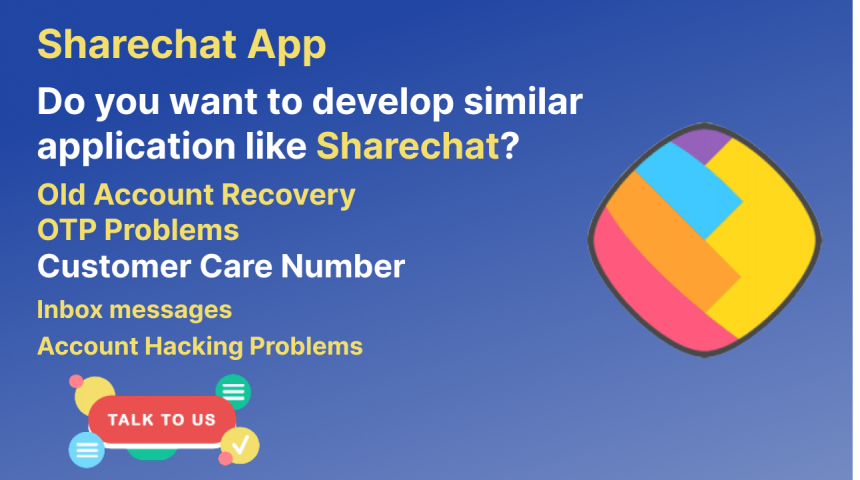
ShareChat App
ShareChat is India’s largest native social media app with over 300M monthly active users and over 15 Indian languages supported. To keep up with rapid growth, the team at ShareChat developed scrappy internal tools to support their most critical needs.
However, scrappiness came with a few costs: suboptimal user experiences and a lot of time spent on maintenance. The gaps created friction for ease of use. And as more tools were built with different frameworks and libraries, they were difficult to maintain and update over time. All of these problems contributed to inefficiencies in engineering and operating speeds at ShareChat.
Akshat Bhargava joined ShareChat as a product manager to fix these internal tooling problems. He had three priorities for his team: build internal tools fast without sacrificing quality, create more productive user experiences, and reduce maintenance needs for the long term.
Very quickly, the new approach took off. Teams from operations to content moderation adopted the new internal tools framework. This is the story of how Akshat and the Tools Team created a more efficient process for building internal tools at ShareChat. The end result: ShareChat builds tools and operates faster, all while reducing engineering expenses by 20%.
Creating a new process for building internal toolsBefore Akshat joined, product teams and operations teams all built their own fullstack internal tools (owning both the frontends and backends). But as the company grew and required more custom apps, they knew that they needed to evolve the process.
“Most of the code that was written for internal tools was about shipping things as fast as possible,” says Akshat. “Speed is important, but with traditional development, faster often means that you deprioritize the user experience.”
A new internal tools process (V1)Akshat and his team established a Tools Team to own and develop the frontends for all internal tools, while other teams continued to own their backends. The Tools Team wanted to maintain a consistent and high-quality user experience across all internal tools without being a bottleneck on the way teams use their data—as teams needed to make frequent changes to their backends.
“At fast-growing startups, I don’t recommend that one team owns the backend,” says Akshat. “You typically see this model at larger companies since it optimizes for stability. But startups can’t afford to have 6 to 12-month development cycles. We launch entire new product lines in a matter of weeks or months. That’s why we decided to split ownership between the frontend and backend.”
But the next big problem for ShareChat: how would the Tools Team build frontends fast enough to meet the demand?
Democratizing app developmentThe latest iteration worked at ShareChat for 6 months. But it started breaking down as more requests for frontends added to a bottleneck on the Tools Team.
Even after prioritizing tooling requests, the Tools Team couldn’t code and maintain all custom frontends that met high standards for user experiences. And hiring more engineers would be too expensive and slow.
A new internal tools process (V2)The only way to scale and meet demand was to enable end-teams to build frontends—reverting to a model similar to their original process—but this time equipping teams with a platform, frameworks and structure so that development could be fast and apps could scale as the company grew.
“We wanted to build tools for all of the use cases that teams needed,” says Akshat. “But we couldn’t keep up with demand. So we looked into democratizing app development. We wanted to enable teams to build their app frontends using the frameworks that we provided.”
End teams can now build apps faster by using Retool as their frontend builder (V2) on top of their production data sources. The Tools Team provides the frameworks and structure to help.
Akshat evaluated Retool, Google AppSheet, and Zoho Creator to help provide the platform needed. During his evaluation, he noticed that Google Appsheet and Zoho Creator would only solve simple use cases, like building forms and tables. But his team needed to build complex tools that could last.
Akshat and team scheduled a demo with Retool to learn more. Technical product managers at ShareChat built a proof of concept app in Retool that added value immediately—and they enjoyed using it.
“Since we wanted to avoid the overhead for our team, we needed the platform to be intuitive and easy to use,” says Akshat. “Retool met those requirements. We noticed good adoption signals and feedback from our proof of concepts, so we decided to use Retool as our platform for building internal tools across the company.”
Onboarding creators 20% faster with RetoolThe operations team needed to verify and onboard thousands of creators to help grow the content side of their business. They knew enough SQL to iterate on and build a Creator Ops Management app using Retool.
The Creator Ops Management app needed to:
- Help operations managers identify creators, understand their backgrounds, look at their ShareChat content, update engagement scores, and accept or reject the user for creator programs
- Integrate with existing databases and APIs to populate creator information, as well as write back to keep data up-to-date
- Integrate with calling software and the WhatsApp API so that ops folks could communicate directly with creators
- Offer the safety and security needed for deploying apps at scale, such as SSO, audit logs, access controls, and git-based source control
The Creator Ops Management app was built and deployed 10x faster than originally expected with Retool—within 9 days. Akshat estimates that it would have taken them over 3 months to build and deploy this app using the previous model. Retool enabled the operations team to build a custom app optimized for their use case, and saved Tools Team engineers time to work on their biggest opportunities.
Now, the operations team successfully onboards all creators faster in one Retool app that’s connected to their chosen data sources. More than 50 people use the Creator Ops Management app to onboard over 50,000 creators every month. Akshat mentions that the operations team is 20% faster at onboarding creators than before, and they’ve been able to scale the team more efficiently.





